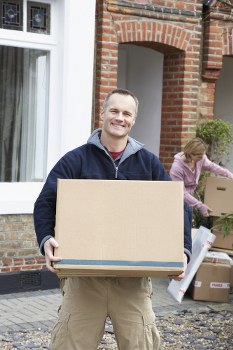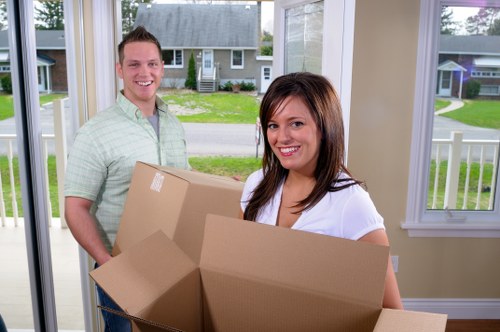White Goods Recycle Epping: Your Comprehensive Guide to Sustainable Disposal

Recycling white goods in Epping is essential for maintaining a clean and sustainable environment. White goods, such as refrigerators, washing machines, and dishwashers, are bulky items that require proper disposal to prevent environmental harm.
Many residents in Epping are becoming more aware of the importance of recycling these appliances. Not only does recycling help reduce landfill waste, but it also allows valuable materials to be reclaimed and reused.
In this guide, we will explore the best practices for recycling white goods in Epping, the benefits of doing so, and how you can contribute to a greener community.
Why Recycle White Goods?

Recycling white goods offers numerous benefits, both for the environment and for the community. Here are some key reasons to consider recycling your old appliances:
- Environmental Protection: Proper recycling prevents harmful substances from entering the environment.
- Resource Conservation: Recycled materials can be used to produce new appliances, reducing the need for raw materials.
- Energy Savings: Recycling typically uses less energy compared to manufacturing products from virgin materials.
- Cost-Effective: Many recycling programs offer free or low-cost disposal for large appliances.
By recycling your white goods, you are making a positive impact on both the environment and your community.
Moreover, recycling helps in managing waste more efficiently, ensuring that Epping remains a clean and healthy place to live.
How to Recycle White Goods in Epping

Recycling white goods in Epping is a straightforward process. Here are the steps you can follow to ensure your appliances are recycled properly:
- Assess Your Appliance: Determine if your white goods are still functional or need to be disposed of.
- Contact Local Recyclers: Reach out to local recycling centers or services in Epping that accept white goods.
- Schedule a Pickup: Many recycling services offer convenient pickup options for large appliances.
- Prepare for Recycling: Ensure that the appliance is clean and safe for transport. Disconnect and remove any hazardous materials if necessary.
- Transport to Recycling Center: If you prefer to drop off the appliance yourself, make arrangements to transport it to the designated recycling facility.
Following these steps will help you recycle your white goods efficiently and responsibly.
Additionally, some retailers offer recycling programs when you purchase a new appliance, making the process even easier.
Benefits of Recycling White Goods

Recycling white goods offers several advantages that go beyond environmental protection. Here are some of the key benefits:
- Reduces Landfill Waste: By recycling, you help decrease the amount of waste that ends up in landfills.
- Promotes Sustainability: Recycling supports sustainable practices by reusing materials and conserving resources.
- Creates Jobs: The recycling industry creates employment opportunities in collection, processing, and manufacturing.
- Encourages Innovation: Recycling drives innovation in materials science and sustainable technologies.
Furthermore, recycling white goods can also have economic benefits, including potential savings from reduced waste management costs.
Overall, recycling is a crucial component of maintaining a sustainable and thriving community.
Local Recyclers and Services in Epping

Epping is home to several reliable recycling centers and services that specialize in white goods. Here are some of the top options:
- Epping Recycling Center: Offers comprehensive recycling services for all types of white goods.
- Green Earth Solutions: Provides eco-friendly recycling solutions and schedules pickups.
- EcoWaste Management: Specializes in the disposal and recycling of large appliances.
- ReRecycle Epping: Focuses on sustainable recycling practices and material recovery.
These centers ensure that your white goods are processed responsibly, minimizing environmental impact.
Additionally, many of these services adhere to local regulations and standards, providing peace of mind that your appliances are handled correctly.
Nearby Areas for White Goods Recycling
In addition to Epping, several nearby areas also offer excellent white goods recycling services. Here are 15 nearby areas you can consider:
- South Epping
- Eastwood
- Carlingford
- Cherrybrook
- Belrose
- Dennis Hills
- Marsfield
- Macquarie Park
- North Ryde
- Petersham
- Hornsby
- Chatswood
- Strathfield
- Ryde
- Kangaroo Point
Each of these areas has its unique features and convenient recycling options, making it easier for residents to dispose of their white goods responsibly.
Whether you’re in South Epping or Kangaroo Point, you’ll find reliable services that prioritize environmental sustainability.
Tips for Efficient White Goods Recycling
To make the recycling process as smooth as possible, consider the following tips:
- Plan Ahead: Schedule your recycling appointment in advance to avoid last-minute hassles.
- Check Requirements: Different recyclers may have specific requirements for appliance condition and preparation.
- Remove Personal Items: Ensure all personal items are removed from the appliance before recycling.
- Consider Energy Efficiency: When purchasing a new appliance, look for energy-efficient models to reduce future environmental impact.
- Stay Informed: Keep up-to-date with local recycling guidelines and programs to maximize your recycling efforts.
Implementing these tips will help you recycle your white goods effectively and contribute to a more sustainable Epping.
Additionally, being informed about the recycling process can enhance your overall experience and satisfaction.
Environmental Impact of Recycling White Goods
Recycling white goods significantly reduces the environmental footprint associated with manufacturing and waste disposal. Here are some of the positive impacts:
- Lower Greenhouse Gas Emissions: Recycling processes typically emit fewer greenhouse gases compared to producing new materials.
- Resource Preservation: Recycling helps conserve natural resources, such as metals and plastics, by reusing existing materials.
- Reduced Energy Consumption: Recycling generally consumes less energy, contributing to overall energy conservation.
- Minimized Pollution: Proper recycling minimizes soil and water pollution by safely disposing of hazardous components.
By choosing to recycle, you are actively participating in efforts to combat climate change and promote environmental sustainability.
Moreover, recycling supports the circular economy, where materials are kept in use for as long as possible, reducing the need for new production.
Economic Benefits of Recycling
Recycling white goods also brings various economic advantages to the community:
- Job Creation: The recycling industry creates numerous jobs in collection, processing, and manufacturing sectors.
- Cost Savings: Recycling can reduce municipal waste management costs by diverting large appliances from landfills.
- Revenue Generation: Recycled materials can be sold to manufacturers, generating revenue for recycling centers.
- Economic Growth: A robust recycling industry can stimulate economic growth by fostering sustainable business practices.
These economic benefits highlight the importance of supporting recycling initiatives in Epping and surrounding areas.
Investing in recycling infrastructure can lead to long-term financial savings and economic resilience for the community.
Common Challenges in Recycling White Goods
Despite the benefits, recycling white goods can present some challenges:
- Transportation Issues: Moving large appliances to recycling centers can be logistically difficult.
- Cost Concerns: Some recycling services may charge fees, making it less accessible for low-income residents.
- Awareness: Limited knowledge about recycling options can prevent people from properly disposing of their white goods.
- Regulatory Barriers: Strict regulations can complicate the recycling process for certain appliances.
Addressing these challenges requires collaborative efforts from the community, local governments, and recycling providers.
Enhancing public awareness and improving recycling infrastructure can help overcome these obstacles.
Future of White Goods Recycling in Epping
The future of white goods recycling in Epping looks promising, with ongoing initiatives aimed at improving sustainability:
- Advanced Recycling Technologies: Innovations in recycling technology will make the process more efficient and effective.
- Increased Participation: Community education programs will encourage more residents to recycle their white goods.
- Government Support: Enhanced policies and incentives will support recycling efforts and infrastructure development.
- Partnerships: Collaborations between local businesses and recycling centers will expand recycling services.
These developments will contribute to a more sustainable and environmentally friendly Epping.
By staying committed to recycling, the community can achieve significant environmental and economic gains.
Conclusion
Recycling white goods in Epping is a crucial step towards a sustainable future. By properly disposing of appliances, residents can protect the environment, conserve resources, and support the local economy.
With numerous recycling centers and services available, the process has become more accessible and efficient. By following best practices and overcoming common challenges, the community can make a significant positive impact.
Embrace recycling today and contribute to a cleaner, greener Epping for generations to come.
Frequently Asked Questions
1. What qualifies as white goods for recycling in Epping?
White goods typically include large household appliances such as refrigerators, washing machines, dryers, dishwashers, and ovens. These items are usually bulky and require special handling for recycling.
2. Is there a cost associated with recycling white goods in Epping?
Many recycling centers in Epping offer free or low-cost recycling services for white goods. It's best to contact your local recycling provider to confirm any potential fees.
3. How do I prepare my white goods for recycling?
Before recycling, ensure the appliance is clean and free from any personal items. Disconnect it from the power source and remove any detachable parts if required by the recycling center.
4. Can I recycle white goods myself without a recycling center?
While some minor appliances can be recycled independently, large white goods typically require specialized facilities. It's recommended to use local recycling services to ensure proper handling.
5. What happens to white goods after they are recycled?
Recycled white goods are processed to recover valuable materials such as metals, plastics, and glass. These materials are then reused in the manufacturing of new products, reducing the need for raw materials.